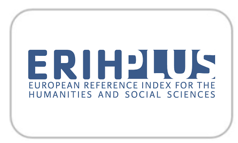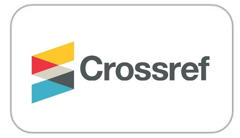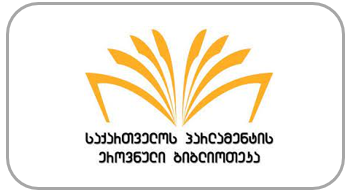The attitude of mothers about prophylactic vaccinations determined by the national immunization calendar in Georgia
DOI:
https://doi.org/10.52340/healthecosoc.2024.08.02.02Keywords:
Georgia, Prevention, Infectious diseases, Child immunization, Immunization, Vaccination, Vaccination, ImmunizationAbstract
Introduction: Immunization is the best way to prevent infectious diseases. One of the challenges of the state immunization program in Georgia is to maintain the 95% coverage rate with routine vaccination, which is directly proportional to the population's awareness, especially parents. The study aims to study mothers' attitudes regarding the preventive vaccinations determined by the national immunization calendar and to search for the factors determining this attitude and ways to overcome the identified difficulties. Methodology: a survey of parents and pediatricians was conducted as part of the qualitative research. Results, Discussion: The study showed that public awareness about immunization is not very high and requires targeted activities. There is a close relationship between vaccination side effects and immunization behavior, as it is the side effects that influence parents' decisions, which ultimately affect immunization coverage rates. Conclusion: The fear of vaccination is primarily caused by ignorance, therefore, we must begin to overcome the problem by providing valid information, since the main reason for refusing vaccination is incorrect information and lack of communication
References
გაეროს ბავშვთა ფონდი, & ლ.საყვარელიძის სახელობის დაავადებათა კონტროლის და საზოგადოებრივი ჯანმრთელობის ეროვნული ცენტრი N. (2016). მოსახლეობის ცოდნის დამოკიდებულებისა და პრაქტიკის შესწავლა იმუნიზაციასთან მიმართებაში 2016.
ვერულავა თ, ჯაიანი მ. (2019). იმუნიზაციის შესახებ დედების ცოდნისა და დამოკიდებულებების კვლევა. ჯანდაცვის პოლიტიკა, ეკონომიკა და სოციოლოგია, 3:1–23. https://heconomic.cu.edu.ge/index.php/healthecosoc/article/view/6382
ნიჟარაძე დ. (2023). სტუდენტთა ცოდნისა და დამოკიდებულებების კვლევა COVID-19 ვაქცინაციის მიმართ. ჯანდაცვის პოლიტიკა, ეკონომიკა და სოციოლოგია, 7(1). https://heconomic.cu.edu.ge/index.php/healthecosoc/article/view/6814
პირადაშვილი ნ., ტაბიძე ბ. (2023). გრიპის და რესპირატორული ვირუსის ეპიდემიოლოგიური მახასიათებლები ბავშვებში. ჯანდაცვის პოლიტიკა, ეკონომიკა და სოციოლოგია, 7(1). https://heconomic.cu.edu.ge/index.php/healthecosoc/article/view/6606
სამყურაშვილი ლიანა, & გოგონაია ირინა. (2021). ინფექციური დაავადებები და მათი მკურნალობა ქართულ წერილობით წყაროებში. 0–2.
საქართველოს დაავადებათა კონტროლისა და საზოგადოებრივი ჯანმრთელობის ეროვნული ცენტრი. (2017). იმუნიზაციის კვლევა საქართველოში (p. 76).
საქართველოს მთავრობა. (2011). 2011 წლის ჯანმრთელობის დაცვის სახელმწიფო პროგრამები. http://ssa.gov.ge/index.php?lang_id=GEO&sec_id=63
შენგელია მ. (2022). Covid-19-ის საწინააღმდეგო ვაქცინისადმი უნდობლობა: აცრის გადაწყვეტილებასთან დაკავშირებული ბარიერები. ჯანდაცვის პოლიტიკა, ეკონომიკა და სოციოლოგია, 6. https://heconomic.cu.edu.ge/index.php/healthecosoc/article/view/6305
Chikovani I, Foundation CI, Imnadze P, General D, Jabidze L. (2021). Country Case Study : Lessons Learned from Georgia ’ s Experience Transitioning from Gavi Support. Curatio International Foundation. https://www.linkedimmunisation.org/wp-content/uploads/2021/10/Georgia-Transition-Case-Study-final.pdf
Filia A, Bella A, D’Ancona F, Fabiani M, Giambi C, Rizzo C, Ferrara L, Pascucci MG, Rota MC. (2019). Childhood vaccinations: Knowledge, attitudes and practices of paediatricians and factors associated with their confidence in addressing parental concerns, Italy, 2016. Eurosurveillance, 24(6). https://doi.org/10.2807/1560-7917.ES.2019.24.6.1800275
Kuznetsova L, Cortassa G, Trilla A. (2021). Effectiveness of mandatory and incentive-based routine childhood immunization programs in europe: A systematic review of the literature. Vaccines, 9(10), 1–30. https://doi.org/10.3390/VACCINES9101173
Zoidze A. (2016). Draft Report on Immunization Assessment Module of HFSA. Curatio International Foundation.














